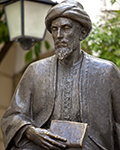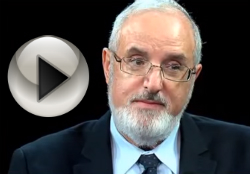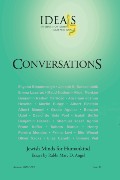Victor Hugo observed that “narrow horizons beget stunted ideas.” Classic Judaism has included an idealistic universalistic world-view. Judaism’s horizons have been great; and it has begotten great ideas. The challenge to modern Jews is to remain faithful to their distinctive mitzvot while maintaining a universalistic ethical idealism.

Welcome to the Institute for Jewish Ideas & Ideals
The Institute for Jewish Ideas and Ideals offers a vision of Orthodox Judaism that is intellectually sound, spiritually compelling, and emotionally satisfying. Based on an unwavering commitment to the Torah tradition and to the Jewish people, it fosters an appreciation of legitimate diversity within Orthodoxy.
YouTube

Rabbi Marc D. Angel answers your questions on our YouTube channel!
The IDEAS Campaign

Please support our IDEAS campaign and be our partners in creating a dynamic and compassionate Orthodoxy. Contribute now! Supporters are featured on our online Scroll of Honor.
Conversations

Find out more about Conversations, the Institute's print journal, including how to get your copy. You can also review our Article Title or Author index.
The Koren Tanakh of the Land of Israel has just published the next volume in its ongoing series. Professor Joshua Berman presents a visual commentary on the slavery and exodus narratives, featuring ancient Egyptian images. Like the Shemot commentary of this excellent series, the vivid images with scholarly explanations bring the Egyptian setting of the Pesah story to life.
Each of us is an ambassador of our people; each of us represents the history, culture and traditions of the millennial Jewish experience; each of us is part of the Jewish destiny. To play our roles as proud and courageous Jews, we need to overcome inferiority complexes and reject “politically correct” pressures; we need to stand tall and strong on behalf of the God of Israel, the Torah of Israel and the People of Israel.
Since its founding in 2020, The Habura and its affiliated Da’at Press have distinguished themselves by producing original scholarship and translations that reflect the classical Geonic and Andalusian worldview. Committed to the highest values of Jewish tradition and scholarship, they make many previously obscure and inaccessible works available to the wider English-reading public.
On Friday, September 27, 1935, the Boston Jewish Advocate published an extensive interview with Rabbi Joseph B. Soloveitchik, who had recently returned to Boston following a four-month stay in Palestine. In what is arguably the most comprehensive articulation of his early Zionism, Rabbi Soloveitchik set forth in this interview his perspective on the role of Orthodoxy in Erets Yisrael.
Rabbi Dr. Benjamin Elton presents three pillars basic to the outlook of an Inclusive Orthodox
Rabbi. They are a route to combining openness with integrity.







